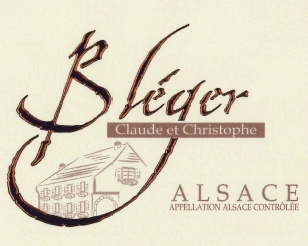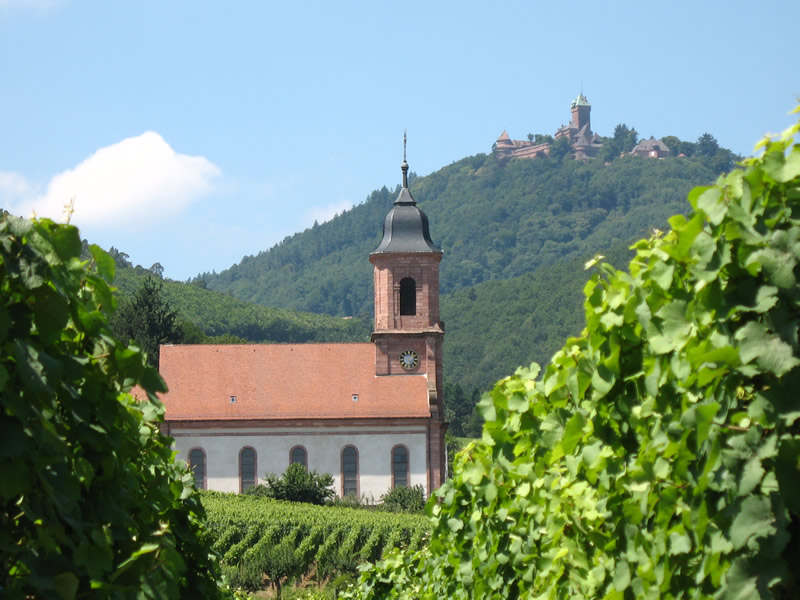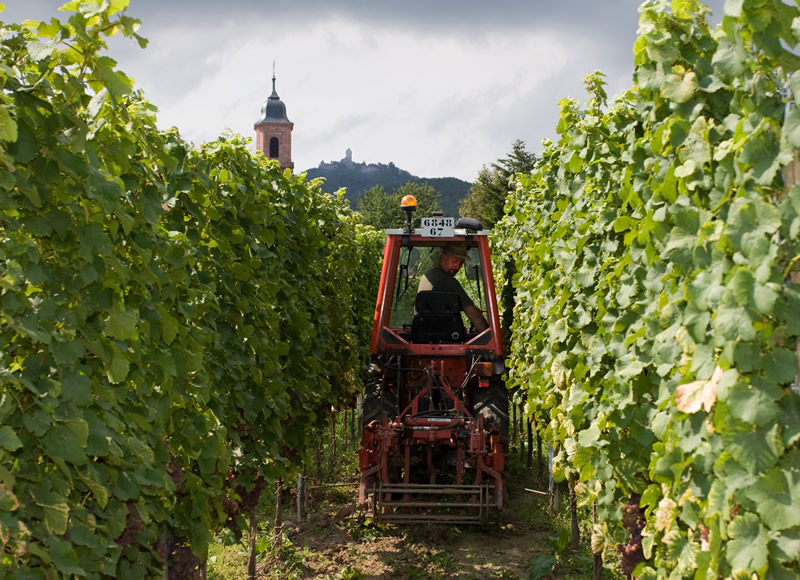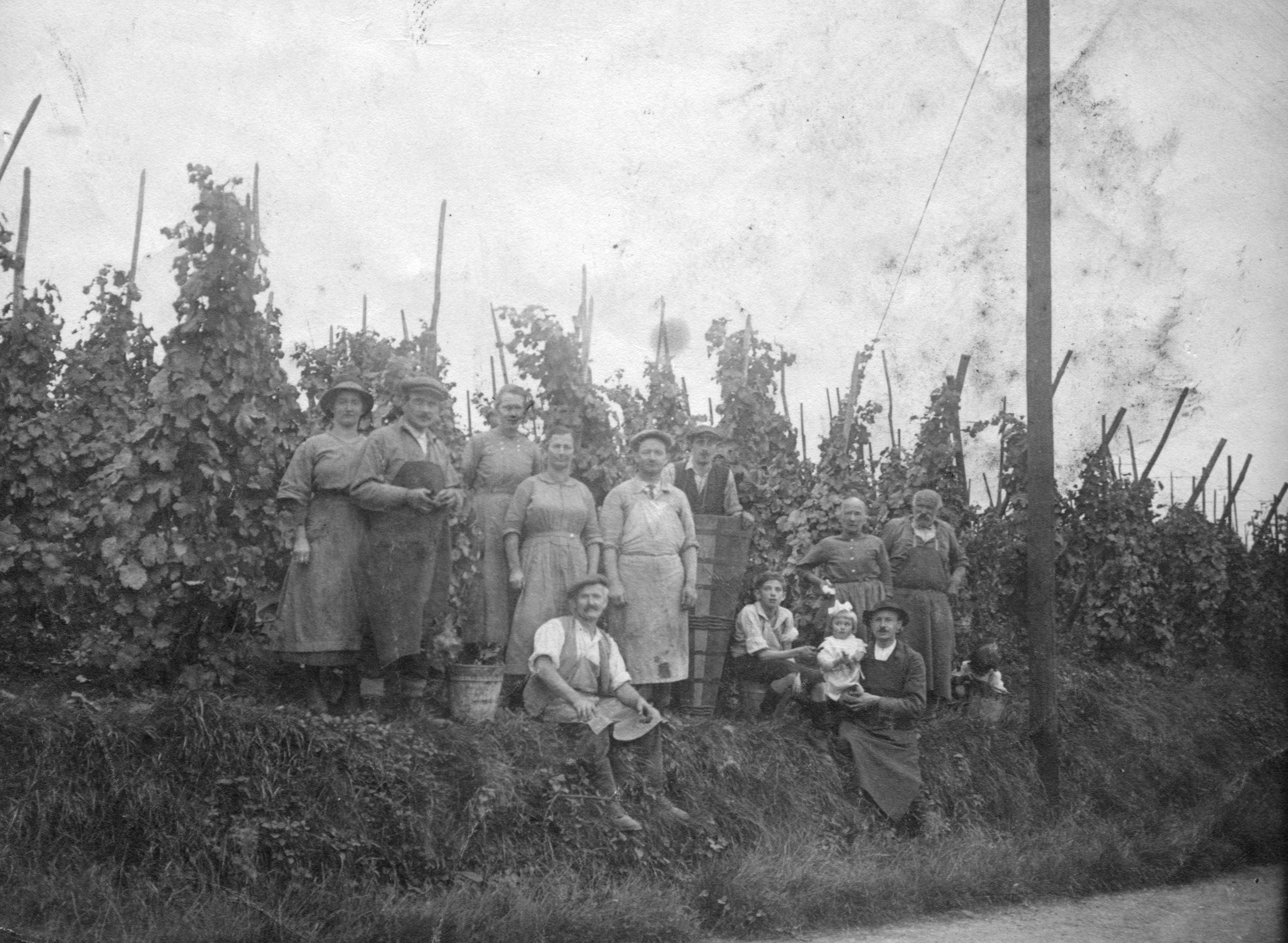Domaine Claude et Christophe Bléger
Winemakers, producers of organic Alsatian wineThe Claude & Christophe BLEGER estate is located at the centre of the Alsatian wine route, at the foot of the prestigious Haut Koenigsbourg castle, in a town called ORSCHWILLER with 650 inhabitants.
As independent winemakers, we work on a 9-hectare vineyard spread over 4 towns and about thirty different parcels. We produce 75,000 bottles per year for the entire range of Alsace wines (dry and sweet white, rosé, red and sparkling).
Our fragmented parcel allows us to work on different types of soil. The presence of the terroir combined with the richness of the seven Alsatian grape varieties, allows us to produce twenty different vintages per year.
To produce a good wine, you need a good grape
The field’s vineyards are cultivated in a biological way. We believe that this process of cultivation allows the vine to flourish and therefore produce a rich and complex fruit with concepts of terroir.
We use a very careful selection of vine plant coupled with high density and short size planting, allowing each vine to produce a small amount of a very valuable grape.
The soil is mechanically worked on (ploughing), allowing its aeration to be essential for the development of microbial life and deep root promotion. The five to seven annual change also allows us to fight against grasses and weeds, because we do not want any competition to the vineyard.
We do not fight against diseases, but we simply try to avoid them, by stimulating the natural defences of the vine, or by using prophylactic methods. In case of high pressure, we deal with natural and organic products.
To be successful in this field, the part of manual work is of course very important, we have 3 full time employees. But we also use certain mechanical tools which make it easier for us to work such as hydraulic plough.
The development of a great wine is an art where we make it a point to put respect in it
The harvest time comes right after this hard work, the irreplaceable fruit of a year’s work. Harvesting is done by hand, in order to sort the harvest as well as to avoid the crushing which causes the oxidation of aromas.
Pressing is very important because it can nullify the efforts made so far. Therefore, we use the latest generation of pneumatic press making it possible to adapt the pressing programme to the physiological particularities of the grape. This programme must be long enough and at a low pressure to extract maximum aromas and intricacies.
The juices are then separated, decanted statically, and put into large oak barrels. Fermentation is completed thanks to the indigenous yeasts, because they alone produce a unique wine and way above the standards. The fermentation temperature is regulated so that it is long and gentle.
After fermentation, the wines are racked and then aged on fine lees. Eight to ten months later, our different raw wines are filtered, bottled and stored for several months in our maturing cellar before being marketed.
For centuries we have been working with Organic Farming
We are winemakers from forefathers to sons and daughters since 1630. Our family from Switzerland arrived in Alsace during the 17th century and was established at the foot of Haut Koenigsbourg castle. This place was long known for the richness of these lands.
For generations, the family who lives from agriculture and livestock thrives and buys lands on the slopes of Haut Koenigsbourg to develop wine business through the taking over of one land right over another.
The field has always been organically cultivated, even before this word was invented, and we are one of the few Alsatian houses to be able to assert and prove that we have always worked using this method.
The beginning of the 1960s is marked by the enhancement of agriculture and therefore the birth of chemicals (herbicides and fungicides). Because of profit interests, a large part of the vineyard is quickly charmed by this promise of a faster and easier work.
When Claude Bléger took over the business upon the death of his father in 1972, he did not believe in the future of these “revolutionary” chemicals. And so he continued to work naturally with the same methods used by his father (ploughing, natural treatment,…). Since then, the field has not ceased receiving criticisms for these working methods from time to time. But the quality of wines produced were appealing to connoisseurs, and bottles were adorned with medals of the most prestigious competitions. In the early 1990s, the European Union ascertained organic farming, and some winemakers started to produce grapes. Claude did not believe in it, as often these same winemakers intensely cultivated a few years earlier and thought that it was a trend which will soon fade away.
Since 2007, and the establishment of Christophe, we were then certified in Organic Farming by Ecocert, because he didn’t think of organic farming as a trend but rather a way to see life in the future. Today, we definitely see the areas that have been hosted for intensive agriculture. Species have disappeared for real, which is not sustainable.
Today, Claude and Christophe are proud of their work both in the vineyards and in the cellar. Many enthusiasts come to visit them for a tasting of local wines, which are way above the standardised products…





